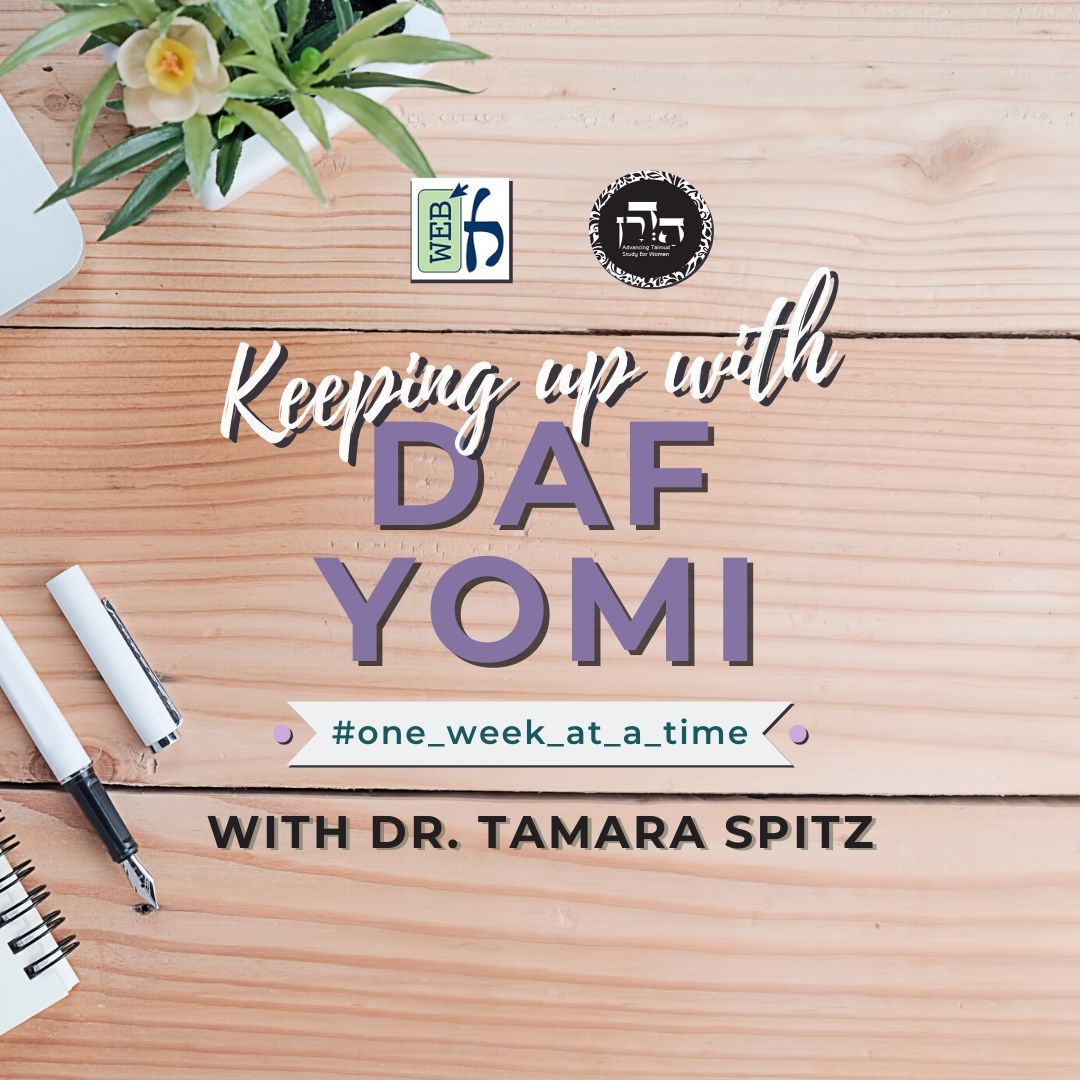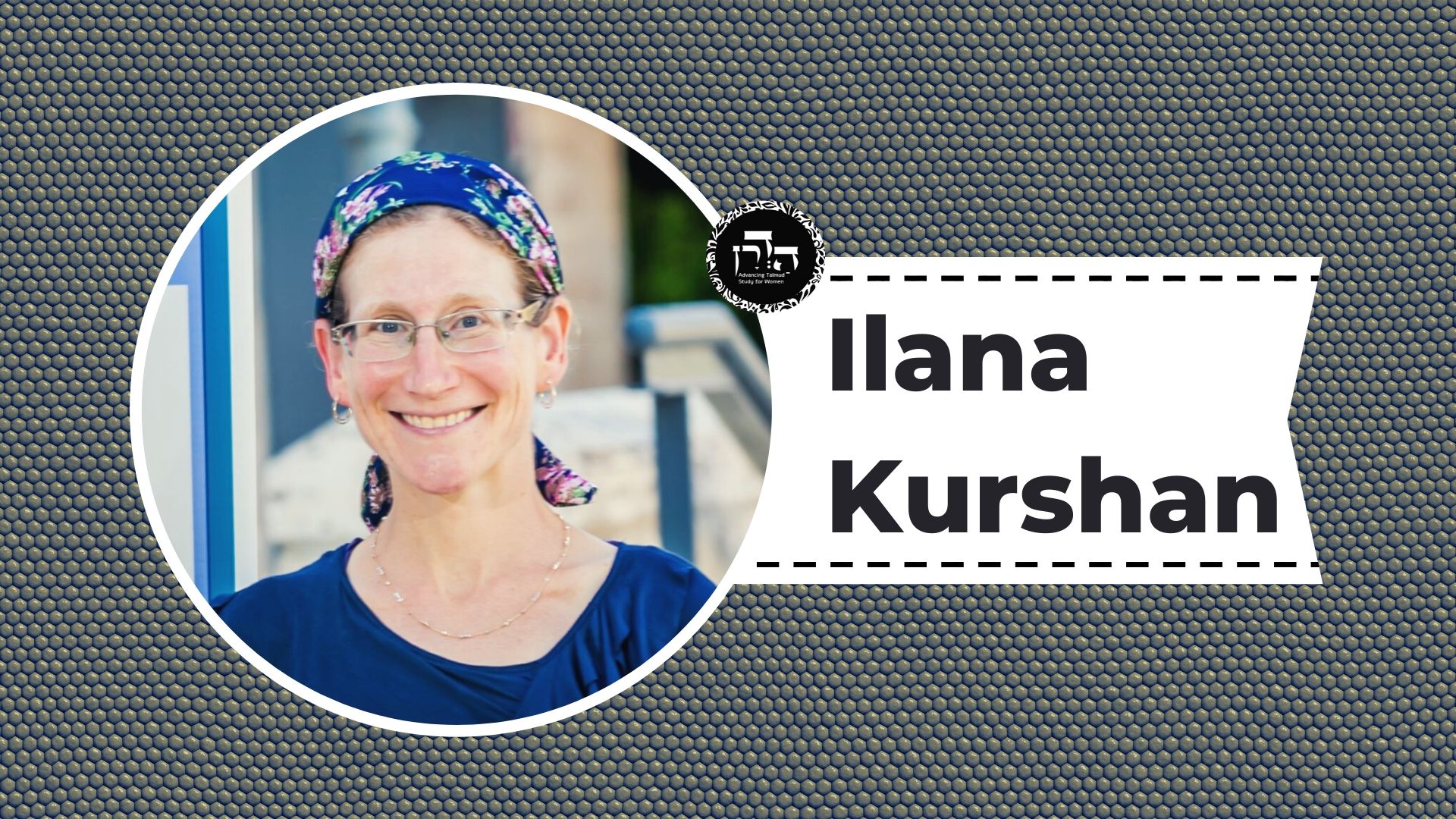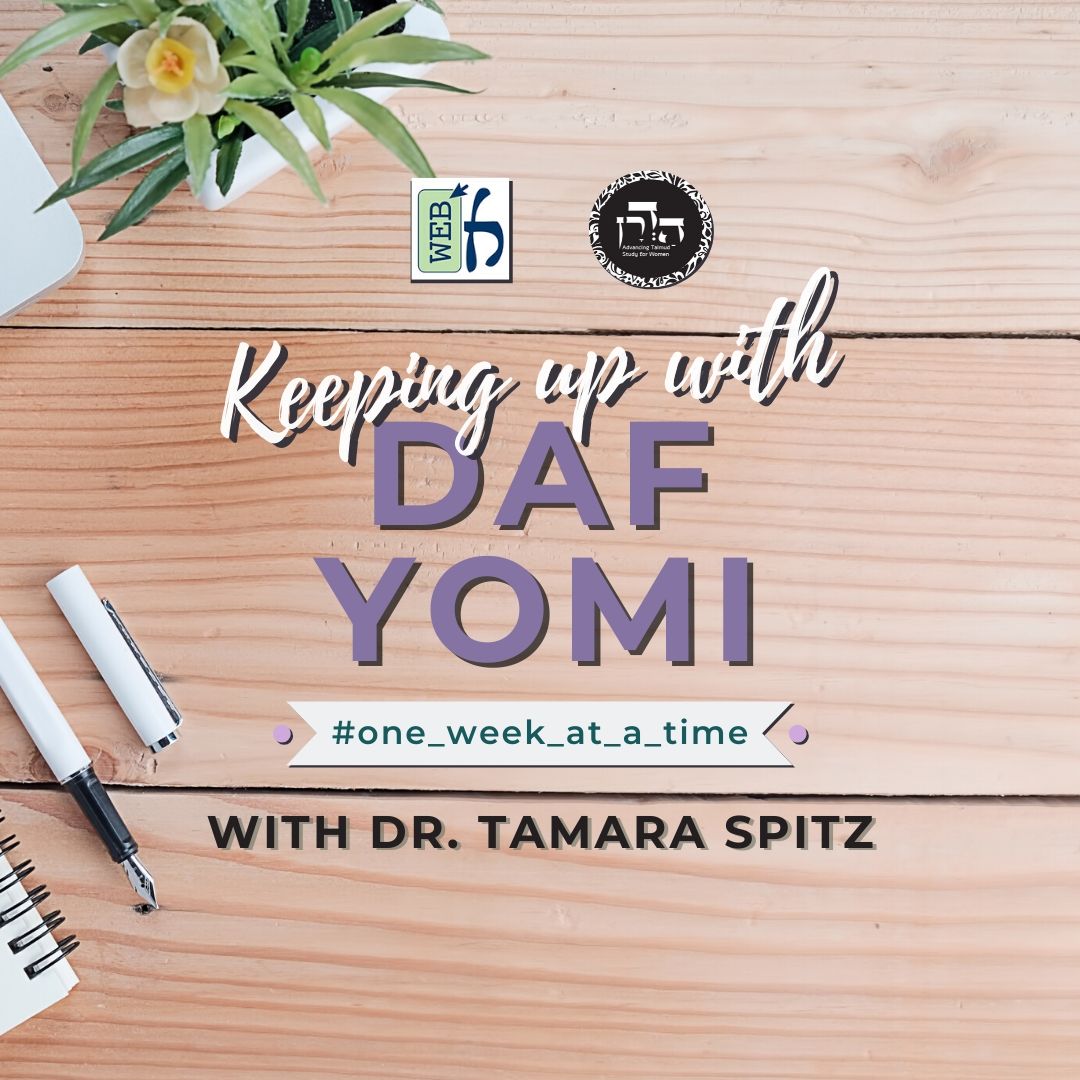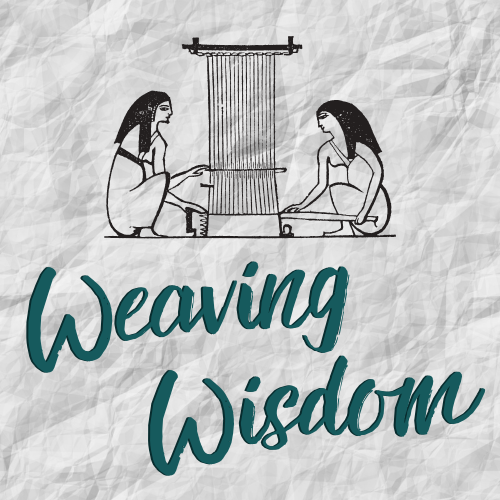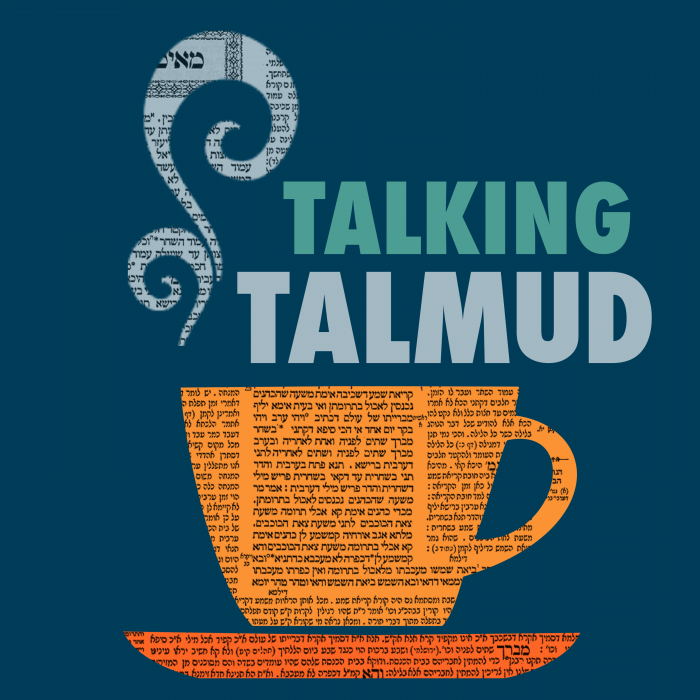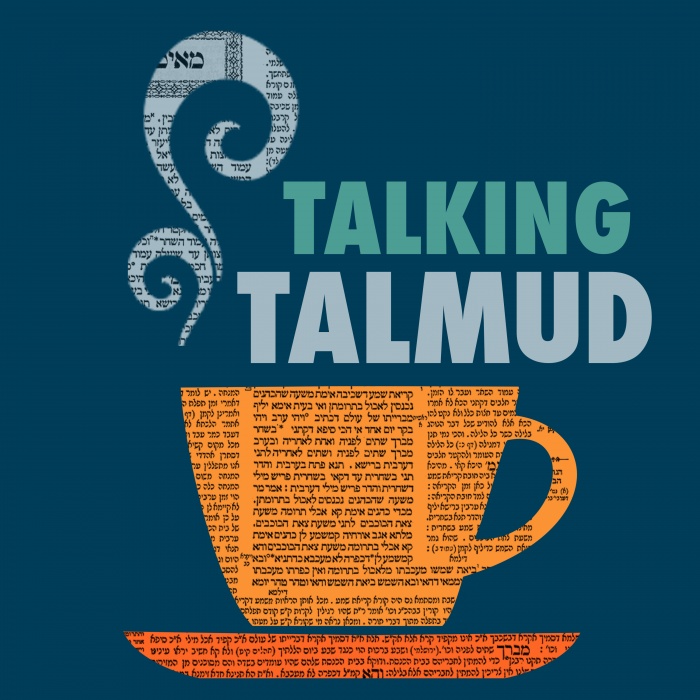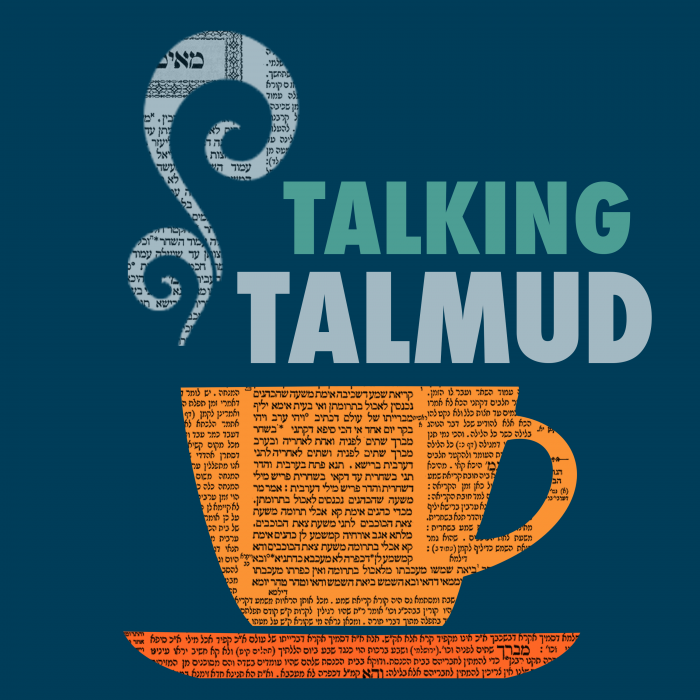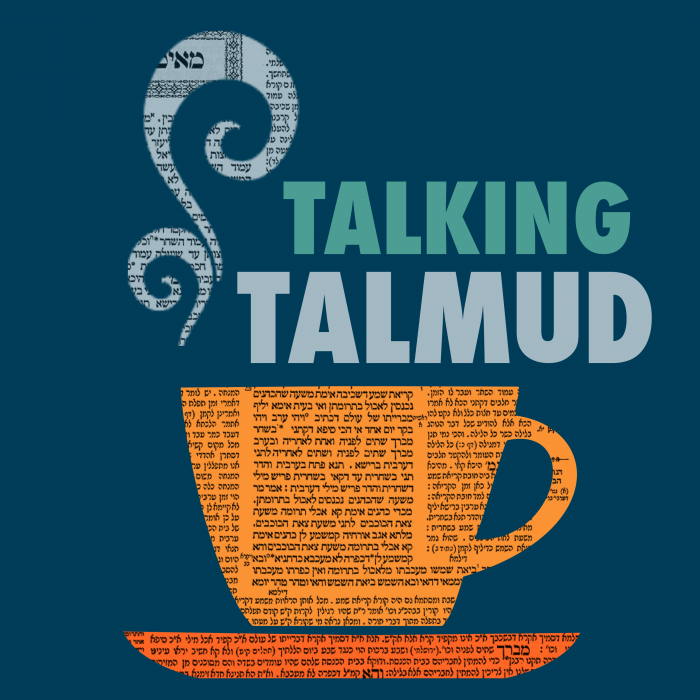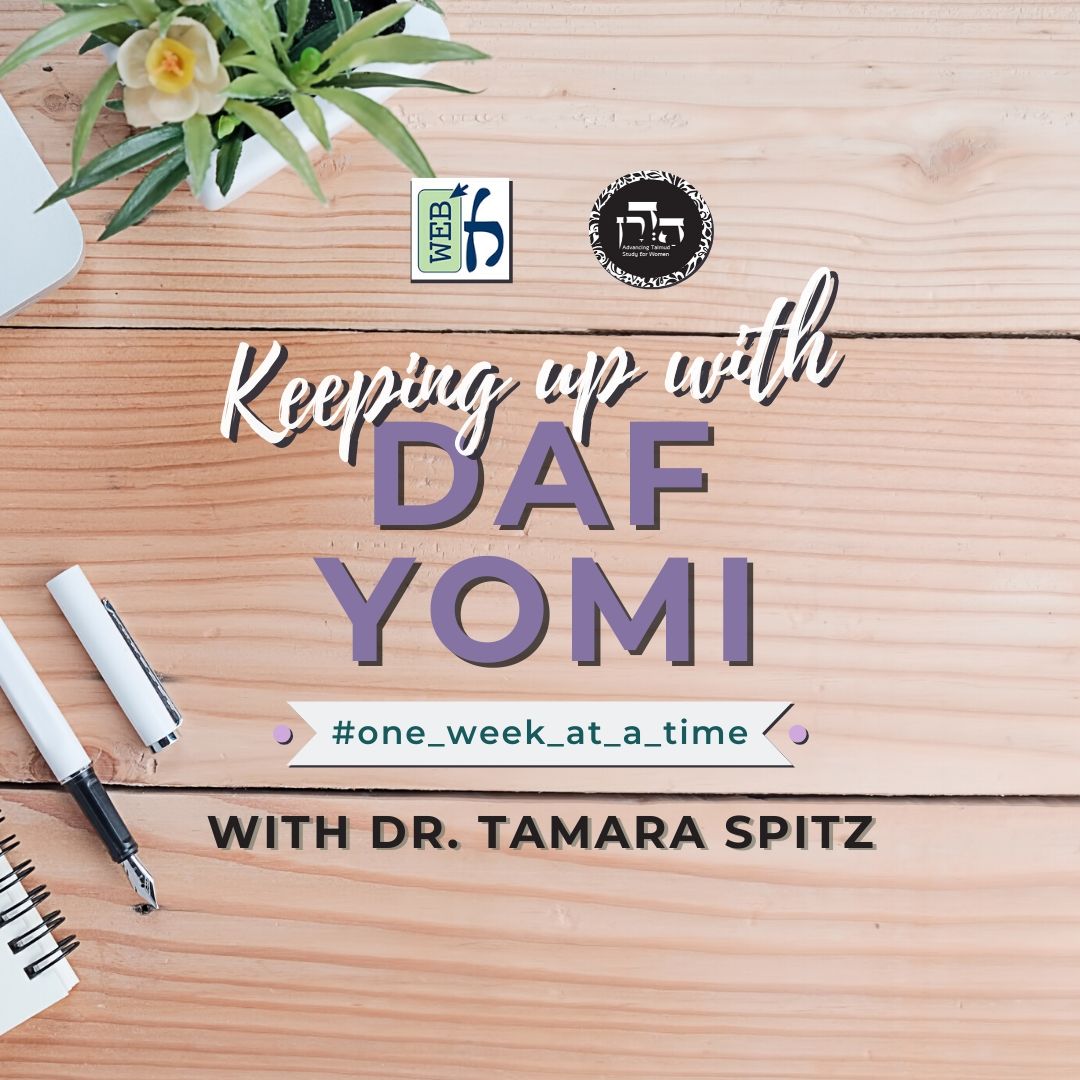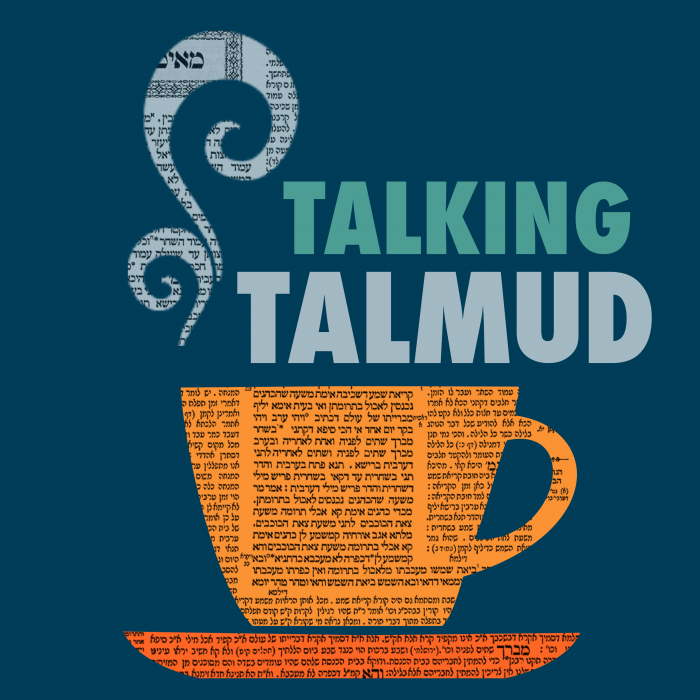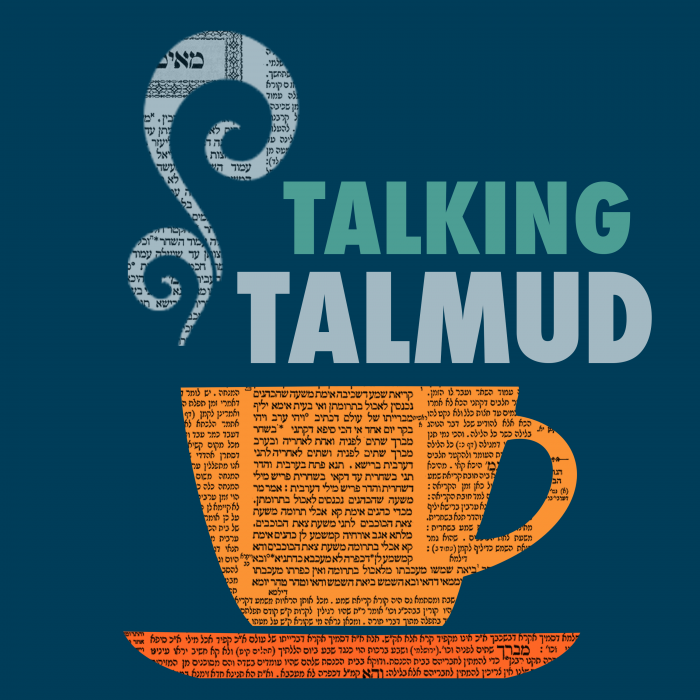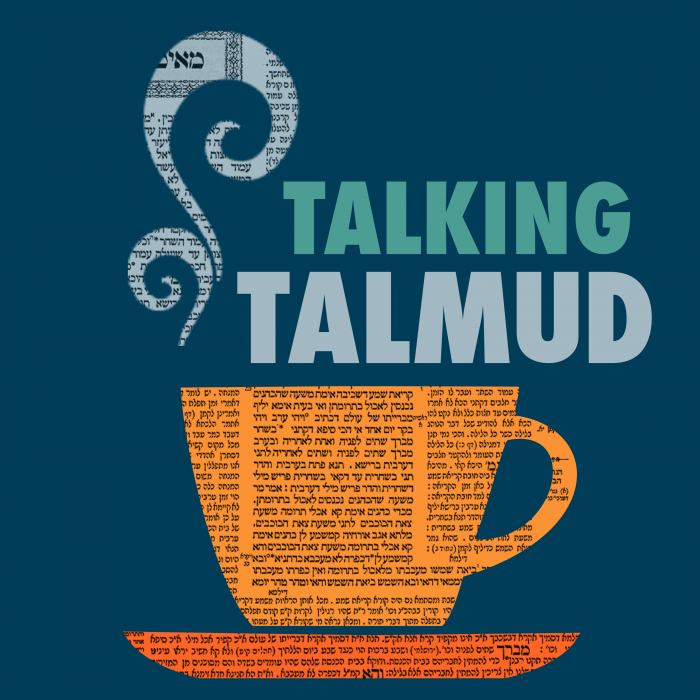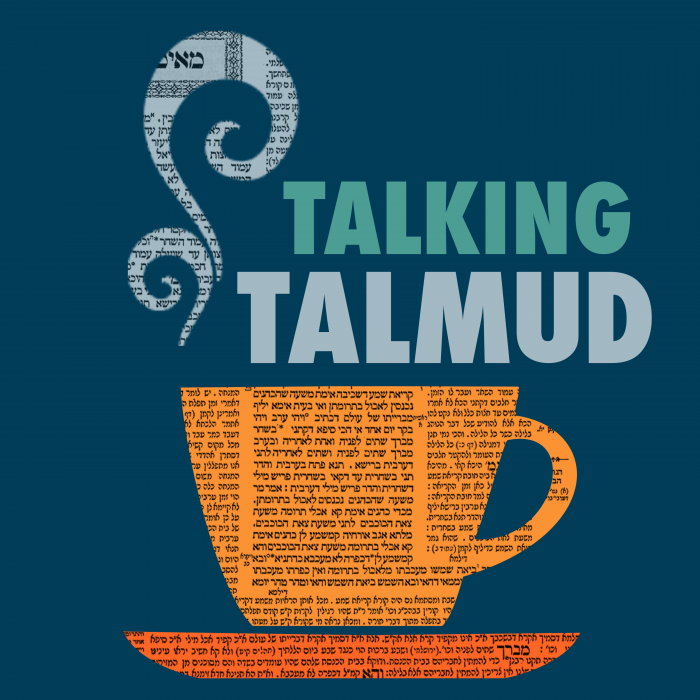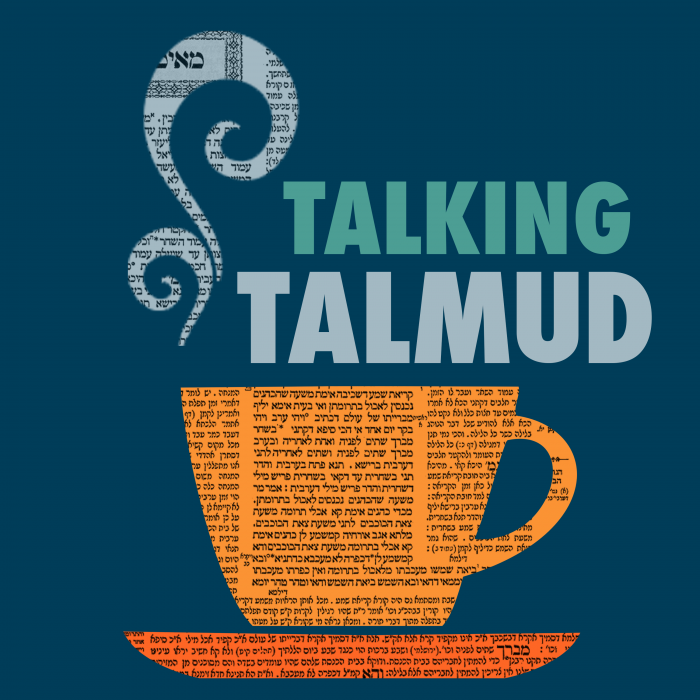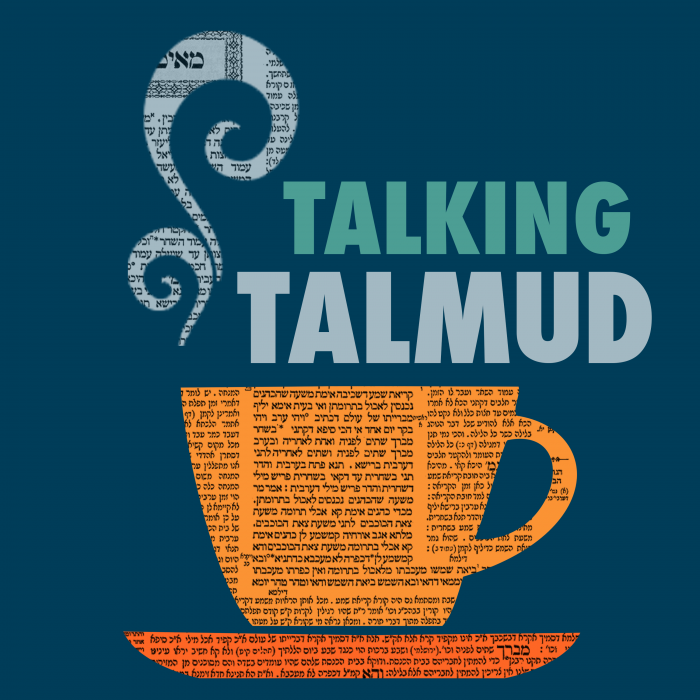Shabbat 156
רַבִּי יוֹסֵי בְּרַבִּי יְהוּדָה הִיא. וְהָנֵי מִילֵּי הוּא דִּמְשַׁנֵּי. הֵיכִי מְשַׁנֵּי? אָמַר רַב חִסְדָּא: עַל יָד עַל יָד.
It is the opinion of Rabbi Yosei, son of Rabbi Yehuda. And this leniency applies only in a case where one alters the way that he kneads. The Gemara asks: How does one alter the manner in which he kneads? Rav Ḥisda said: One does not knead the dough all at once but rather a little bit at a time.
וְשָׁוִין שֶׁבּוֹחֲשִׁין אֶת הַשַּׁתִּית בַּשַּׁבָּת וְשׁוֹתִים זֵיתוֹם הַמִּצְרִי. וְהָאָמְרַתְּ ״אֵין גּוֹבְלִין״! לָא קַשְׁיָא: הָא בְּעָבָה, הָא בְּרַכָּה. וְהָנֵי מִילֵּי הוּא דִּמְשַׁנֵּי.
It was also taught: And they agree that one may mix the shatit, roasted barley to which honey is added, on Shabbat, and drink Egyptian beer, as it is not considered to be for medicinal purposes. The Gemara asks: Didn’t you say: One may not knead? That contradicts the statement that they agree that it is permitted to stir the shatit. The Gemara answers: This is not difficult, as there is a distinction between the cases. This dispute with regard to shatit is referring to mixing a thick mixture, which is similar to kneading. However, that statement where they agree that mixing is permitted is referring to a soft, thin mixture that cannot be kneaded. And all of these statements are referring to a case where one alters the way he kneads or stirs.
הֵיכִי מְשַׁנֵּי? אָמַר רַב יוֹסֵף: בַּחוֹל נוֹתֵן אֶת הַחוֹמֶץ וְאַחַר כָּךְ נוֹתֵן אֶת הַשַּׁתִּית, בַּשַּׁבָּת נוֹתֵן אֶת הַשַּׁתִּית וְאַחַר כָּךְ נוֹתֵן אֶת הַחוֹמֶץ. לֵוִי בְּרֵיהּ דְּרַב הוּנָא בַּר חִיָּיא אַשְׁכְּחֵיהּ לְגַבָּלָא דְּבֵי נְשֵׁיהּ דְּקָא גָבֵיל וְסָפֵי לֵיהּ לְתוֹרֵיהּ. בְּטַשׁ בֵּיהּ. אֲתָא אֲבוּהּ אַשְׁכְּחֵיהּ, אֲמַר לֵיהּ: הָכִי אָמַר אֲבוּהּ דְּאִמָּךְ מִשְּׁמֵיהּ דְּרַב, וּמַנּוּ — רַבִּי יִרְמְיָה בַּר אַבָּא: גּוֹבְלִין וְלֹא מַסְפִּין, וּדְלָא לָקֵיט בְּלִישָּׁנֵיהּ — מַלְקִיטִין לֵיהּ. וְהָנֵי מִילֵּי הוּא דִּמְשַׁנֵּי.
The Gemara asks: How does one alter the manner in which he performs these actions? Rav Yosef said: On a weekday one first places the vinegar in a vessel and then places the shatit. On Shabbat one first places the shatit and then places the vinegar. The Gemara relates that Levi, son of Rav Huna bar Ḥiyya, found the one who kneads in his parents’ home kneading bran on Shabbat and feeding it to his ox. He kicked him so that he would stop. When his father came and found him, he said to him: This is what your mother’s father said in the name of Rav. The Gemara interjects: And who is his mother’s father? It is Rabbi Yirmeya bar Abba, who said: One may knead but not feed animals, and a calf that does not take the food with its tongue may be fed on Shabbat. And this applies only when one alters the manner in which he does so.
הֵיכִי מְשַׁנֵּי? אָמַר רַב יֵימַר בַּר שֶׁלֶמְיָא מִשְּׁמֵיהּ דְּאַבָּיֵי: שְׁתִי וָעֵרֶב. וְהָא לָא מִעָרַב שַׁפִּיר? אָמַר רַב יְהוּדָה: מְנַעֲרוֹ לִכְלִי.
The Gemara asks: How does one alter the manner in which he does so? Rav Yeimar bar Shelamya said in the name of Abaye: One moves the ladle or stirring utensil in the directions of warp and woof. The Gemara asks: Isn’t it the case that it will not mix well, so what is the point of stirring it that way? Rav Yehuda said: It means that one pours it into another vessel and in the process it is mixed.
כְּתִיב אַפִּינְקָסֵיהּ דִּזְעֵירִי: אֲמַרִית קֳדָם רַבִּי, וּמַנּוּ — רַבִּי חִיָּיא: מַהוּ לְגַבֵּל? אָמַר: אָסוּר. מַהוּ לְפָרֵק? אָמַר: מוּתָּר. אָמַר רַב [מְנַשְּׁיָא]: חַד קַמֵּי חַד, תְּרֵי קַמֵּי תְּרֵי — שַׁפִּיר דָּמֵי. תְּלָתָא קַמֵּי תְּרֵי — אֲסִיר. רַב יוֹסֵף אָמַר: קַב וַאֲפִילּוּ קַבַּיִים. עוּלָּא אָמַר: כּוֹר וַאֲפִילּוּ כּוֹרַיִים.
It was written in Ze’eiri’s notebook: I said before my rabbi, and the Gemara asks: And who is his rabbi? It is Rabbi Ḥiyya. And Ze’eiri said before him: What is the ruling? Is it permitted to knead on Shabbat? He said: It is prohibited. What is the ruling with regard to emptying food from a vessel before one animal to place it before another animal? He said: It is permitted. Rav Menashya said: Placing one trough before one animal or two troughs before two animals, one may well do so. Placing three troughs before two animals is prohibited, because it is considered to be superfluous labor as he is bringing the animals more food than they need. Rav Yosef said: It is permitted to add a kav of additional food or even two kav. Ulla said: One may add a kor or even two kor and there is no need for concern.
כְּתִיב אַפִּינְקָסֵיהּ דְּלֵוִי: אֲמַרִית קֳדָם רַבִּי, וּמַנּוּ — רַבֵּינוּ הַקָּדוֹשׁ, עַל דַּהֲווֹ גָּבְלִין שְׁתִיתָא בְּבָבֶל, וַהֲוָה צָוַח רַבִּי (וּמַנּוּ? — רַבֵּינוּ הַקָּדוֹשׁ, עַל דַּהֲווֹ גָּבְלִין שַׁתִּיתָא), וְלֵית דְּשָׁמַע לֵיהּ, וְלֵית חֵילָא בִּידֵיהּ לְמֵיסַר מִדְּרַבִּי יוֹסֵי בְּרַבִּי יְהוּדָה.
It was written in Levi’s notebook: I said before my rabbi, and the Gemara asks: And who is his rabbi? It is our holy Rabbi, Rabbi Yehuda HaNasi. Levi spoke about the fact that people would knead shatit in Babylonia, and my rabbi, and who is it, our holy Rabbi, cried in protest over the fact that people would knead shatit. And there was no one who listened to him, and he did not have the power to prohibit it due to the people’s reliance on the opinion of Rabbi Yosei, son of Rabbi Yehuda, who permitted doing so.
כְּתִיב אַפִּינְקָסֵיהּ דְּרַבִּי יְהוֹשֻׁעַ בֶּן לֵוִי: הַאי מַאן דִּבְחַד בְּשַׁבָּא, יְהֵי גְּבַר וְלָא חֲדָא בֵּיהּ.
After citing relevant halakhot written in the notebooks of various Sages, the Gemara relates that it was written in Rabbi Yehoshua ben Levi’s notebook: One who was born on the first day of the week, Sunday, will be a person and there will not be one in him.
מַאי [״וְלָא חֲדָא בֵּיהּ״]? אִילֵּימָא: וְלָא חַד לְטֵיבוּ, וְהָאָמַר רַב אָשֵׁי: אֲנָא בְּחַד בְּשַׁבָּא הֲוַאי! אֶלָּא לָאו חֲדָא לְבִישׁוּ, וְהָאָמַר רַב אָשֵׁי: אֲנָא וְדִימִי בַּר קָקוֹזְתָּא הֲוֵינַן בְּחַד בְּשַׁבָּא, אֲנָא מֶלֶךְ, וְהוּא הֲוָה רֵישׁ גַּנָּבֵי! אֶלָּא: אִי כּוּלֵּיהּ לְטֵיבוּ, אִי כּוּלֵּיהּ לְבִישׁוּ. מַאי טַעְמָא? דְּאִיבְּרוֹ בֵּיהּ אוֹר וָחוֹשֶׁךְ.
The Gemara asks: What is the meaning of the phrase: There will not be one in him? If you say that there is not one quality for the best, that cannot be, as Rav Ashi said: I was born on the first day of the week, and one cannot say that there was nothing good about him. Rather, it must mean that there is not one quality for the worst. Didn’t Rav Ashi say: I and Dimi bar Kakuzta were both born on the first day of the week. I became a king, the head of a yeshiva, and he became the head of a gang of thieves, clearly a negative quality. Rather, one born on a Sunday is either completely for the best or completely for the worst. What is the reason for this? It is because both light and darkness were created on the first day of Creation.
הַאי מַאן דְּבִתְרֵי בְּשַׁבָּא יְהֵי גְּבַר רַגְזָן. מַאי טַעְמָא? מִשּׁוּם דְּאִיפְּלִיגוּ בֵּיהּ מַיָּא. הַאי מַאן דְּבִתְלָתָא בְּשַׁבָּא — יְהֵי גְּבַר עַתִּיר וְזַנַּאי יְהֵא. מַאי טַעְמָא? מִשּׁוּם דְּאִיבְּרוֹ בֵּיהּ עֲשָׂבִים. הַאי מַאן דִּבְאַרְבְּעָה בְּשַׁבָּא — יְהֵי גְּבַר חַכִּים וְנָהִיר. מַאי טַעְמָא? מִשּׁוּם דְּאִיתְּלוֹ בֵּיהּ מְאוֹרוֹת.
One who was born on the second day of the week, Monday, will be a short-tempered person. What is the reason for this? It is because on that day, the second day of Creation, the upper and lower waters were divided. Therefore, it is a day of contentiousness.
One who was born on the third day of the week will be a rich man and a promiscuous person. What is the reason for this? It is because on that day, the third day, vegetation was created. It grows abundantly but is also mixed together without boundaries between the grass and the plants.
One who was born on the fourth day of the week will be a wise and enlightened person. What is the reason for this? It is because the heavenly lights were hung in the heavens on that day, and wisdom is likened to light.
הַאי מַאן דִּבְחַמְשָׁה בְּשַׁבָּא — יְהֵי גְּבַר גּוֹמֵל חֲסָדִים. מַאי טַעְמָא? מִשּׁוּם דְּאִיבְּרוֹ בֵּיהּ דָּגִים וְעוֹפוֹת. הַאי מַאן דִּבְמַעֲלֵי שַׁבְּתָא — יְהֵי גְּבַר חַזְרָן. אָמַר רַב נַחְמָן בַּר יִצְחָק: חַזְרָן בְּמִצְוֹת. הַאי מַאן דִּבְשַׁבְּתָא יְהֵי — בְּשַׁבְּתָא יְמוּת, עַל דְּאַחִילוּ עֲלוֹהִי יוֹמָא רַבָּא דְּשַׁבְּתָא. אָמַר רָבָא בַּר רַב שֵׁילָא: וְקַדִּישָׁא רַבָּא יִתְקְרֵי.
One who was born on the fifth day of the week will be a person who performs acts of kindness. What is the reason for this? It is because on that day the fish and fowl were created, and they do not receive their sustenance by performing work for people. They are sustained by the kindness of God alone.
One who was born on the sixth day of the week will be a seeker. Rav Naḥman bar Yitzḥak said that this means that he will be one who seeks out mitzvot, as most of the activity on Friday involves preparation for Shabbat.
One who was born on Shabbat will die on Shabbat, because they desecrated the great day of Shabbat on his behalf. Rava bar Rav Sheila said: And he will be called a person of great sanctity because he was born on the sacred day of Shabbat.
אֲמַר לְהוּ רַבִּי חֲנִינָא, פּוּקוּ אֱמַרוּ לֵיהּ לְבַר לֵיוַאי: לֹא מַזַּל יוֹם גּוֹרֵם אֶלָּא מַזַּל שָׁעָה גּוֹרֵם. הַאי מַאן דִּבְחַמָּה — יְהֵי גְּבַר זִיוְתָן, יְהֵי אָכֵיל מִדִּילֵיהּ וְשָׁתֵי מִדִּילֵיהּ, וְרָזוֹהִי גַּלְיִין, אִם גָּנֵיב — לָא מַצְלַח. הַאי מַאן דִּבְכוֹכָב נוֹגַהּ — יְהֵי גְּבַר עַתִּיר וְזַנַּאי יְהֵי. מַאי טַעְמָא? מִשּׁוּם דְּאִיתְיְלִיד בֵּיהּ נוּרָא. הַאי מַאן דִּבְכוֹכָב — יְהֵי גְּבַר נָהִיר וְחַכִּים, מִשּׁוּם דְּסָפְרָא דְחַמָּה הוּא. הַאי מַאן דְּבִלְבָנָה — יְהֵי גְּבַר סָבֵיל מַרְעִין, בָּנֵי וְסָתַר, סָתַר וּבָנֵי, אָכֵיל דְּלָא דִּילֵיהּ וְשָׁתֵי דְּלָא דִּילֵיהּ וְרָזוֹהִי כַּסְיִין אִם גָּנֵב — מַצְלַח. הַאי מַאן דִּבְשַׁבְּתַאי — יְהֵי גְּבַר מַחְשְׁבָתֵיהּ בָּטְלִין. וְאִית דְּאָמְרִי: כׇּל דִּמְחַשְּׁבִין עֲלֵיהּ בָּטְלִין. הַאי מַאן דִּבְצֶדֶק — יְהֵי גְּבַר צִדְקָן. אָמַר רַב נַחְמָן בַּר יִצְחָק: וְצַדְקָן בְּמִצְוֹת. הַאי מַאן דִּבְמַאְדִּים — יְהֵי גְּבַר אָשֵׁיד דְּמָא. אָמַר רַב אָשֵׁי: אִי אוּמָּנָא, אִי גַּנָּבָא, אִי טַבָּחָא, אִי מָהוֹלָא. אָמַר רַבָּה: אֲנָא בְּמַאְדִּים הֲוַאי. אָמַר אַבָּיֵי: מָר נָמֵי עָנֵישׁ וְקָטֵיל.
Rabbi Ḥanina said to his students who heard all this: Go and tell the son of Leiva’i, Rabbi Yehoshua ben Levi: It is not the constellation of the day of the week that determines a person’s nature; rather, it is the constellation of the hour that determines his nature.
One who was born under the influence of the sun will be a radiant person; he will eat from his own resources and drink from his own resources, and his secrets will be exposed. If he steals he will not succeed, because he will be like the sun that shines and is revealed to all.
One who was born under the influence of Venus will be a rich and promiscuous person. What is the reason for this? Because fire was born during the hour of Venus, he will be subject the fire of the evil inclination, which burns perpetually.
One who was born under the influence of Mercury will be an enlightened and expert man, because Mercury is the sun’s scribe, as it is closest to the sun.
One who was born under the influence of the moon will be a man who suffers pains, who builds and destroys, and destroys and builds. He will be a man who eats not from his own resources and drinks not from his own resources, and whose secrets are hidden. If he steals he will succeed, as he is like the moon that constantly changes form, whose light is not its own, and who is at times exposed and at times hidden.
One who was born under the influence of Saturn will be a man whose thoughts are for naught. And some say that everything that others think about him and plan to do to him is for naught.
One who was born under the influence of Jupiter [tzedek] will be a just person [tzadkan]. Rav Naḥman bar Yitzḥak said: And just in this context means just in the performance of mitzvot.
One who was born under the influence of Mars will be one who spills blood. Rav Ashi said: He will be either a blood letter, or a thief, or a slaughterer of animals, or a circumciser. Rabba said: I was born under the influence of Mars and I do not perform any of those activities. Abaye said: My Master also punishes and kills as a judge.
אִיתְּמַר, רַבִּי חֲנִינָא אוֹמֵר: מַזָּל מַחְכִּים, מַזָּל מַעֲשִׁיר, וְיֵשׁ מַזָּל לְיִשְׂרָאֵל. רַבִּי יוֹחָנָן אָמַר: אֵין מַזָּל לְיִשְׂרָאֵל. וְאַזְדָּא רַבִּי יוֹחָנָן לְטַעְמֵיהּ, דְּאָמַר רַבִּי יוֹחָנָן: מִנַּיִין שֶׁאֵין מַזָּל לְיִשְׂרָאֵל? שֶׁנֶּאֱמַר: ״כֹּה אָמַר ה׳ אֶל דֶּרֶךְ הַגּוֹיִם אַל תִּלְמָדוּ וּמֵאוֹתוֹת הַשָּׁמַיִם אַל תֵּחָתּוּ כִּי יֵחַתּוּ הַגּוֹיִם מֵהֵמָּה״ — הֵם יֵחַתּוּ, וְלֹא יִשְׂרָאֵל.
It was stated that Rabbi Ḥanina says: A constellation makes one wise and a constellation makes one wealthy, and there is a constellation for the Jewish people that influences them. Rabbi Yoḥanan said: There is no constellation for the Jewish people that influences them. The Jewish people are not subject to the influence of astrology. And Rabbi Yoḥanan follows his own reasoning, as Rabbi Yoḥanan said: From where is it derived that there is no constellation for the Jewish people? As it is stated: “Thus said the Lord: Learn not the way of the nations, and be not dismayed at the signs of heaven; for the nations are dismayed at them” (Jeremiah 10:2). The nations will be dismayed by them, but not the Jewish people.
וְאַף רַב סָבַר אֵין מַזָּל לְיִשְׂרָאֵל, דְּאָמַר רַב יְהוּדָה אָמַר רַב: מִנַּיִין שֶׁאֵין מַזָּל לְיִשְׂרָאֵל? — שֶׁנֶּאֱמַר: ״וַיּוֹצֵא אוֹתוֹ הַחוּצָה״, אָמַר אַבְרָהָם לִפְנֵי הַקָּדוֹשׁ בָּרוּךְ הוּא: רִבּוֹנוֹ שֶׁל עוֹלָם, ״בֶן בֵּיתִי יוֹרֵשׁ אוֹתִי״, אָמַר לוֹ: לָאו — ״כִּי אִם אֲשֶׁר יֵצֵא מִמֵּעֶיךָ״.
And Rav also holds that there is no constellation for the Jewish people, as Rav Yehuda said that Rav said: From where is it derived that there is no constellation for the Jewish people? As it is stated with regard to Abraham: “And He brought him outside, and said: Look now toward heaven, and count the stars, if you are able to count them; and He said unto him: So shall your offspring be” (Genesis 15:5). The Sages derived from this that Abraham said before the Holy One, Blessed be He: Master of the Universe, “Behold, You have given me no offspring, and one born in my house is to be my heir” (Genesis 15:3). The Holy One, Blessed be He, said to him: No. “And, behold, the word of the Lord came to him, saying: This man shall not be your heir; rather, one that will come forth from your own innards shall be your heir” (Genesis 15:4).
אָמַר לְפָנָיו: רִבּוֹנוֹ שֶׁל עוֹלָם נִסְתַּכַּלְתִּי בְּאִיצְטַגְנִינוּת שֶׁלִּי, וְאֵינִי רָאוּי לְהוֹלִיד בֵּן. אָמַר לוֹ: צֵא מֵאִיצְטַגְנִינוּת שֶׁלְּךָ, שֶׁאֵין מַזָּל לְיִשְׂרָאֵל. מַאי דַּעְתָּיךְ?
Abraham said before Him: Master of the Universe, I looked at my astrological map, and according to the configuration of my constellations I am not fit to have a son. The Holy One, Blessed be He, said to him: Emerge from your astrology, as the verse states: “And He brought him outside,” as there is no constellation for Israel. What is your thinking?
דְּקָאֵי צֶדֶק בְּמַעֲרָב — מְהַדַּרְנָא וּמוֹקֵימְנָא לֵיהּ בְּמִזְרָח. וְהַיְינוּ דִּכְתִיב: ״מִי הֵעִיר מִמִּזְרָח צֶדֶק יִקְרָאֵהוּ לְרַגְלוֹ״.
Is it because Jupiter is situated in the west that you cannot have children? I will restore it and establish it in the east. And that is the meaning of that which is written with regard to Abraham: “Who has raised up one from the east, he will call justice [tzedek] to his steps [leraglo]. He gives nations before him, and makes him rule over kings; his sword makes them as the dust, his bow as the driven stubble” (Isaiah 41:2). God established Jupiter [tzedek] in the east on behalf of [leraglo] Abraham.
וּמִדִּשְׁמוּאֵל נָמֵי אֵין מַזָּל לְיִשְׂרָאֵל. דִּשְׁמוּאֵל וְאַבְלֵט הֲווֹ יָתְבִי, וַהֲווֹ קָאָזְלִי הָנָךְ אִינָשֵׁי לְאַגְמָא. אֲמַר לֵיהּ אַבְלֵט לִשְׁמוּאֵל: הַאי גַּבְרָא אָזֵיל וְלָא אָתֵי, טָרֵיק לֵיהּ חִיוְיָא וּמָיֵית. אֲמַר לֵיהּ שְׁמוּאֵל: אִי בַּר יִשְׂרָאֵל הוּא, אָזֵיל וְאָתֵי. אַדְּיָתְבִי אֲזַל וַאֲתָא.
And from that which transpired to Shmuel, one can also conclude that there is no constellation for the Jewish people. The Gemara relates that Shmuel and the gentile sage Ablet were sitting, and they saw these people were going to the lake. Ablet said to Shmuel: This person will go and he will not return, because a snake will bite him and he will die. Shmuel said to him: If he is a Jew, he will go and come back. As they were sitting for a while, the person they discussed went away and then returned.
קָם אַבְלֵט שַׁדְיֵהּ לְטוּנֵיהּ, אַשְׁכַּח בֵּיהּ חִיוְיָא דִּפְסִיק וּשְׁדֵי בְּתַרְתֵּי גוּבֵּי. אֲמַר לֵיהּ שְׁמוּאֵל: מַאי עֲבַדְתְּ? אֲמַר לֵיהּ: כׇּל יוֹמָא הֲוָה מַרְמִינַן רִיפְתָּא בַּהֲדֵי הֲדָדֵי וְאָכְלִינַן. הָאִידָּנָא הֲוָה אִיכָּא חַד מִינַּן דְּלָא הֲוָה לֵיהּ רִיפְתָּא, הֲוָה קָא מִיכְּסַף. אָמֵינָא לְהוּ: אֲנָא קָאֵימְנָא וּמַרְמֵינָא. כִּי מְטַאי לְגַבֵּיהּ, שַׁוַּאי נַפְשַׁאי כְּמַאן דִּשְׁקִילִי מִינֵּיהּ, כִּי הֵיכִי דְּלָא לִיכְּסִיף. אֲמַר לֵיהּ: מִצְוָה עֲבַדְתְּ. נְפַק שְׁמוּאֵל וּדְרַשׁ: ״וּצְדָקָה תַּצִּיל מִמָּוֶת״, וְלֹא מִמִּיתָה מְשׁוּנָּה, אֶלָּא מִמִּיתָה עַצְמָהּ.
Ablet stood up, threw down the person’s burden, and inside he found a snake cut and cast in two pieces. Shmuel said to him: What did you do to merit being saved from death? The person said to him: Every day we all take bread together and eat from the bread. Today, there was one of us who did not have bread, and when it came time to gather the bread, he was embarrassed because he did not have any to give. I said to the others: I will go and take the bread. When I came to the person who did not have bread, I rendered myself as one who was taking from him so that he would not be embarrassed. Shmuel said to him: You performed a mitzva. Shmuel went out and taught based on this incident that even though it is written: “And charity will save from death” (Proverbs 10:2), it does not only mean that it will save a person from an unusual death but even from death itself.
וּמִדְּרַבִּי עֲקִיבָא נָמֵי אֵין מַזָּל לְיִשְׂרָאֵל. דְּרַבִּי עֲקִיבָא הַוְיָא לֵיהּ בְּרַתָּא, אָמְרִי לֵיהּ כַּלְדָּאֵי: הָהוּא יוֹמָא דְּעָיְילָה לְבֵי גְנָנָא, טָרֵיק לַהּ חִיוְיָא, וּמִיתָא. הֲוָה דָּאֵיג אַמִּילְּתָא טוּבָא. הָהוּא יוֹמָא שְׁקַלְתַּהּ לְמַכְבַּנְתָּא, דַּצְתַּהּ בְּגוּדָא, אִיתְרְמִי אִיתִּיב בְּעֵינֵיהּ דְּחִיוְיָא. לְצַפְרָא כִּי קָא שָׁקְלָה לַהּ, הֲוָה קָא סָרֵיךְ וְאָתֵי חִיוְיָא בָּתְרַהּ.
And from that which transpired to Rabbi Akiva as well it can be derived that there is no constellation for the Jewish people, as Rabbi Akiva had a daughter, and Chaldean astrologers told him that on the same day that she enters the wedding canopy, a snake will bite her and she will die. She was very worried about this. On that day, her wedding day, she took the ornamental pin from her hair and stuck it into a hole in the wall for safekeeping, and it happened that it entered directly into the eye of the snake. In the morning, when she took the pin, the snake was pulled and came out with it.
אֲמַר לַהּ אֲבוּהּ: מַאי עֲבַדְתְּ? אֲמַרָה לֵיהּ בְּפַנְיָא אֲתָא עַנְיָא, קְרָא אַבָּבָא וַהֲווֹ טְרִידִי כּוּלֵּי עָלְמָא בִּסְעוּדְתָּא, וְלֵיכָּא דְּשָׁמְעֵיהּ. קָאֵימְנָא, שְׁקַלְתֵּיהּ לְרִיסְתָּנַאי דִּיהַבְתְּ לִי, יַהְבִתֵּיהּ נִיהֲלֵיהּ. אֲמַר לַהּ: מִצְוָה עֲבַדְתְּ. נְפַק רַבִּי עֲקִיבָא וּדְרַשׁ: ״וּצְדָקָה תַּצִּיל מִמָּוֶת״, וְלֹא מִמִּיתָה מְשׁוּנָּה, אֶלָּא מִמִּיתָה עַצְמָהּ.
Her father Rabbi Akiva said to her: What did you do to merit being saved from the snake? She told him: In the evening a poor person came and knocked on the door, and everyone was preoccupied with the feast and nobody heard him. I stood and took the portion that you had given me and gave it to him. Rabbi Akiva said to her: You performed a mitzva, and you were saved in its merit. Rabbi Akiva went out and taught based on this incident that even though it is written: “And charity will save from death” (Proverbs 10:2), it does not mean that it will save a person only from an unusual death, but even from death itself.
וּמִדְּרַב נַחְמָן בַּר יִצְחָק נָמֵי אֵין מַזָּל לְיִשְׂרָאֵל. דְּאִימֵּיהּ דְּרַב נַחְמָן בַּר יִצְחָק אָמְרִי לַהּ כַּלְדָּאֵי: בְּרִיךְ גַּנָּבָא הָוֵה. לָא שְׁבַקְתֵּיהּ גַּלּוֹיֵי רֵישֵׁיהּ. אֲמַרָה לֵיהּ: כַּסִּי רֵישָׁיךָ, כִּי הֵיכִי דְּתִיהְוֵי עֲלָךְ אֵימְתָא דִשְׁמַיָּא, וּבְעִי רַחֲמֵי. לָא הֲוָה יָדַע אַמַּאי קָאָמְרָה לֵיהּ. יוֹמָא חַד יָתֵיב קָא גָרֵיס תּוּתֵי דִיקְלָא, נְפַל גְּלִימָא מֵעִילָּוֵי רֵישֵׁיהּ, דְּלִי עֵינֵיהּ חֲזָא לְדִיקְלָא, אַלְּמֵיהּ יִצְרֵיהּ, סְלֵיק, פַּסְקֵיהּ לְקִיבּוּרָא בְּשִׁינֵּיהּ.
And from that which transpired to Rav Naḥman bar Yitzḥak as well it can be derived that there is no constellation for the Jewish people, As Chaldean astrologers told Rav Naḥman bar Yitzḥak’s mother: Your son will be a thief. She did not allow him to uncover his head. She said to her son: Cover your head so that the fear of Heaven will be upon you, and pray for Divine mercy. He did not know why she said this to him. One day he was sitting and studying beneath a palm tree that did not belong to him, and the cloak fell off of his head. He lifted his eyes and saw the palm tree. He was overcome by impulse and he climbed up and detached a bunch of dates with his teeth. Apparently, he had an inborn inclination to steal, but was able to overcome that inclination with proper education and prayer.
מַתְנִי׳ מְחַתְּכִין אֶת הַדִּלּוּעִין לִפְנֵי הַבְּהֵמָה, וְאֶת הַנְּבֵלָה לִפְנֵי הַכְּלָבִים. רַבִּי יְהוּדָה אוֹמֵר: אִם לֹא הָיְתָה נְבֵלָה מֵעֶרֶב שַׁבָּת, אֲסוּרָה — לְפִי שֶׁאֵינָהּ מִן הַמּוּכָן.
MISHNA: One may cut the pumpkins before an animal on Shabbat, as long as they were picked prior to Shabbat. And likewise one may cut an animal carcass before the dogs on Shabbat. Rabbi Yehuda says: If it was not already a carcass, i.e., it was not dead, prior to Shabbat, it is prohibited to cut it or even move it on Shabbat because it is not prepared for use on Shabbat.
גְּמָ׳ אִיתְּמַר: (עָרֵל שַׁחַז סִימָן.) אָמַר עוּלָּא: הֲלָכָה כְּרַבִּי יְהוּדָה (וּשְׁמוּאֵל אָמַר: הֲלָכָה כְּרַבִּי שִׁמְעוֹן).
GEMARA: A dispute between the amora’im with regard to the prohibition of set-aside on Shabbat was stated. Ayin, reish, lamed, shin, ḥet, zayin is a mnemonic for the names of the amora’im who stated the following halakhot. Ulla said: The halakha is in accordance with the opinion of Rabbi Yehuda, who holds that there is a prohibition of set-aside on Shabbat. And Shmuel said: The halakha is in accordance with the opinion of Rabbi Shimon.
וְאַף רַב סָבַר הֲלָכָה כְּרַבִּי יְהוּדָה. מִדִּכְרָכֵי דְזוּזֵי, דְּרַב אָסַר וּשְׁמוּאֵל שָׁרֵי. וְאַף לֵוִי סָבַר הֲלָכָה כְּרַבִּי יְהוּדָה. כִּי הָא דְּלֵוִי כִּי הֲווֹ מַיְיתִי טְרֵיפְתָּא לְקַמֵּיהּ בְּיוֹמָא טָבָא, לָא הֲוָה חָזֵי לַהּ אֶלָּא כִּי יָתֵיב אַקִּיקְלִיתָא. דַּאֲמַר: דִּילְמָא לָא מִתַּכְשְׁרָא, וַאֲפִילּוּ לִכְלָבִים לָא חַזְיָא.
And Rav also holds that the halakha is in accordance with the opinion of Rabbi Yehuda. From where is it ascertained that this is Rav’s opinion? From that which was taught with regard to the mats that are on ships; Rav prohibited moving them on Shabbat due to the prohibition of set-aside, and Shmuel permitted moving them. And Levi also holds that the halakha is in accordance with the opinion of Rabbi Yehuda, as can be seen from his practice when they would bring a slaughtered animal with regard to which there was concern that it was an animal with a condition that will cause it to die within twelve months [tereifa], before Levi on a Festival. He would examine it only when he was sitting near a garbage dump, as he said: Perhaps it would not be determined to be kosher and it would not be suited even for dogs, and then it would be prohibited to move the carcass. Apparently, he holds that it is prohibited to move a carcass that was not prepared for use before Shabbat.
וּשְׁמוּאֵל אָמַר: הֲלָכָה כְּרַבִּי שִׁמְעוֹן, וְאַף זְעֵירִי סָבַר הֲלָכָה כְּרַבִּי שִׁמְעוֹן. דִּתְנַן: בְּהֵמָה שֶׁמֵּתָה — לֹא יְזִיזֶנָּה מִמְּקוֹמָהּ, וְתַרְגְּמַהּ זְעֵירִי: בְּבֶהֱמַת קׇדָשִׁים. אֲבָל בְּחוּלִּין — שַׁפִּיר דָּמֵי. וְאַף רַבִּי יוֹחָנָן אָמַר הֲלָכָה כְּרַבִּי שִׁמְעוֹן. וּמִי אָמַר רַבִּי יוֹחָנָן הָכִי? וְהָא אָמַר רַבִּי יוֹחָנָן: הֲלָכָה כִּסְתַם מִשְׁנָה, וּתְנַן:
And Shmuel said: The halakha is in accordance with the opinion of Rabbi Shimon, who holds that the prohibition of set-aside does not apply on Shabbat. And Ze’eiri also holds that the halakha is in accordance with the opinion of Rabbi Shimon, as we learned in a mishna: With regard to an animal that died on Shabbat, one may not move it from its place on Shabbat. And Ze’eiri explained: This prohibition only applies to a consecrated animal, as consecrated items may not be fed to dogs in deference to their sanctity; therefore, it is set-aside and may not be moved on Shabbat. However, in the case of a non-sacred animal, one may well move it and use it because it does not have set-aside status. And Rabbi Yoḥanan also said that the halakha is in accordance with the opinion of Rabbi Shimon. The Gemara asks: And did Rabbi Yoḥanan really say that? Didn’t Rabbi Yoḥanan say: The halakha is in accordance with an unattributed mishna, and we learned in a mishna:




